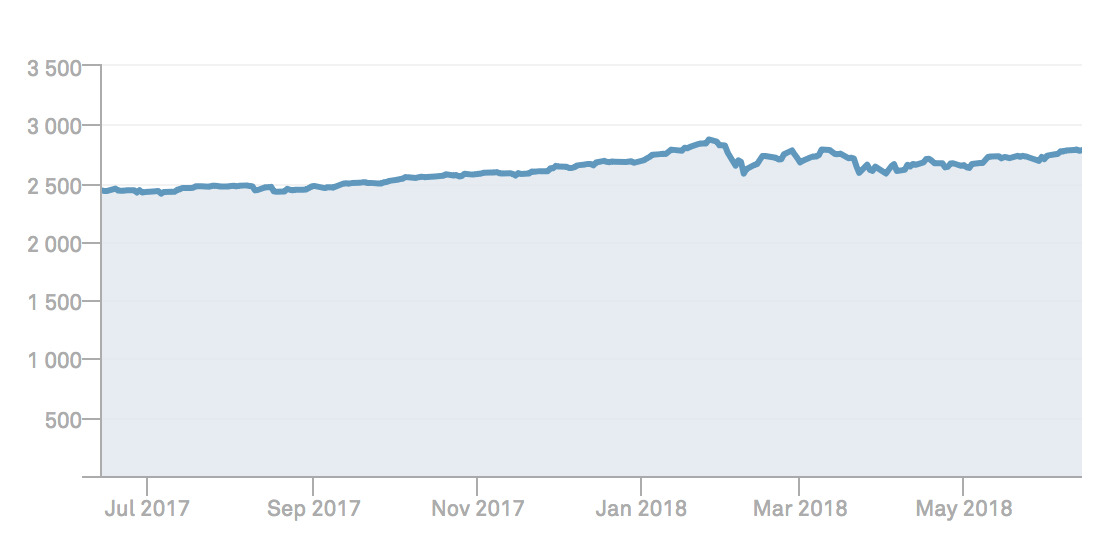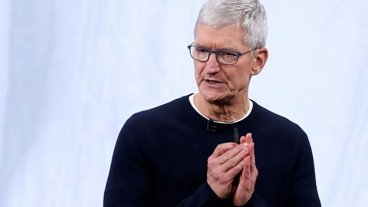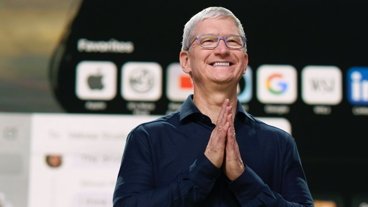Apple & tech's disproportionate share of S&P index raising eyebrows
Tech companies, including Apple, take up a large percentage of the index's value, as well as its growth, leading some observers to question whether Big Tech has gotten too financially powerful.
According to The Wall Street Journal, Apple by itself now comprises four percent of the S&P 500's overall value, based on its current market cap of $937 billion. This is the largest percentage any company has had of the index since ExxonMobil in 2008, although IBM reached 9 percent of the S&P in the early 1970s.
In addition, the five most valuable tech stocks — Apple, Alphabet (Google), Amazon, Microsoft and Facebook — comprise 15 percent of the S&P, as well as a full third of its increase in market value over the last year.
How the S&P works
The S&P 500 is a stock market index listing the 500 most valuable companies listed on the New York Stock Exchange or NASDAQ. Apple has part of the S&P 500 since 1982. The performance of the S&P is generally seen as an indicator of the economy's overall health.
There's a separate S&P 100, which Apple has been a part of since 2007.
The Power of Tech
These numbers make it clear that Apple and other tech companies are hugely important to the global economy, as well as to investor value. But, as raised by the Journal piece, it also sets up a certain amount of risk, especially in the event of a recession.
It's easy to find Apple, Amazon, Facebook, and Google news. However, much of the reporting lacks perspective on what any given supply chain rumor might mean, causing stock fluctuation on a weekly if not daily basis based on one factoid or other out of the supply chain. Individually, they don't amount to much impact on the S&P, and mostly self-correct given enough time.
The big risk is that, if say Apple is too large a percentage of the S&P, a brief panic about its stock — as we saw earlier this year over reports of softening iPhone demand, that turned out to be wildly overstated — could spark a wave of short-selling that hurts the entire index. This leaves the entire S&P open to adverse effects, in case an unscrupulous actor wanted to manipulate the market with false information about one company or industry.
If overall tech company value somehow collapses through some unforeseen tech disruption, or some type of data privacy scandal even worse than those of the last year that significantly erodes trust in large tech companies, it would adversely affect the entire economy. Both the dot-com bubble pop of the late '90s and the real estate debacle of the late '00s proved that the collapse of a single industry can plunge the market into chaos, and an entire economy into recession.
Fortunately, at present, there's no indication that that's anywhere close to happening in this case. Apple, Amazon and the like are established, solid companies, not based on massive debt or ephemeral paper value like so many of the firms who fueled the last two popped bubbles.
And besides — Apple has 4 percent of the S&P. If it had, say, IBM's 9 percent, it might actually count as disproportionately powerful all by itself.
 Stephen Silver
Stephen Silver












 Andrew Orr
Andrew Orr
 Wesley Hilliard
Wesley Hilliard
 Amber Neely
Amber Neely

 William Gallagher
William Gallagher

 Malcolm Owen
Malcolm Owen








